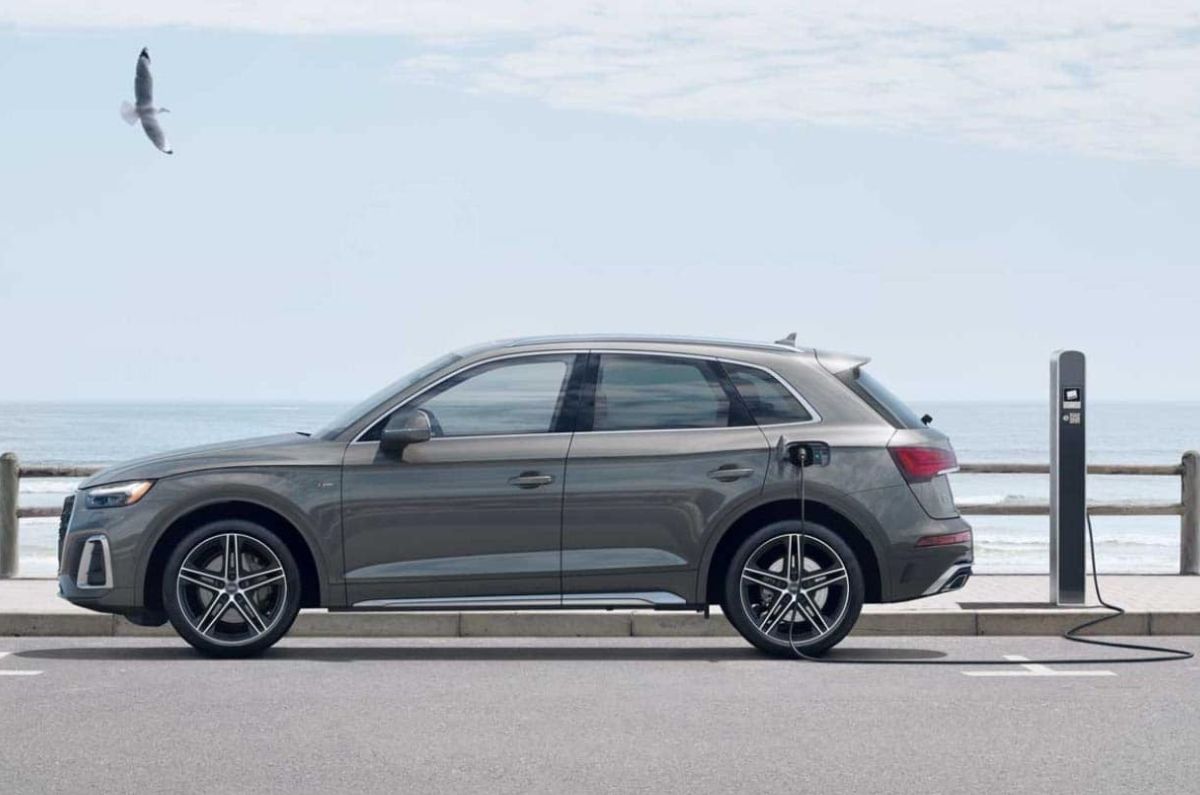Amid a global slowdown in the uptake of EVs, Audi has revealed it will upgrade and expand its range of hybrid vehicles over the coming years. It doesn’t come as a surprise, given that the transition from combustion cars to EVs is taking much longer than initially expected. Several other auto majors, including Mercedes-Benz, BMW and BYD, have also declared such a shift in global plans for similar reasons.
- Audi developing new PHEV powertrains, but will stick to its EV plans, too
- The company’s final combustion engine model is expected to on sale in 2026
Audi is still sticking to its original timeline of having a fully electric model line-up by 2033, but that expansion will likely happen more gradually. Until then, the company will continue offering both combustion and electric options in each of its core segments. Take, for example, the current Q5 and Q6 e-tron.
Speaking to our sister publication, Autocar UK, Audi CEO Gernot Döllner said the firm’s strategy is “future-proofed for the next 10 years”, which, he predicts, will be an extended transition phase between combustion and electric vehicles.
“Within the Volkswagen Group, we recognised early on that plug-in hybrids were a relevant project technology, and now we see that the bridge is longer than we initially thought,” said Döllner.
Globally, quite a few Audis are already offered with a plug-in hybrid powertrain, such as the A3 hatchback, the A6, A7 and A8 sedans, as well as the Q3, Q5, Q7 and Q8 SUVs. None of these PHEVs, however, are offered in India.
Audi developing new PHEV powertrain range
Recognising the relevance of hybrids and their increased demand, Audi is now developing a brand-new range of hybrid powertrains for its next generation of PHEV models. These will come equipped with much larger batteries that’ll likely return about 100km of range on electric power alone.
The upcoming PHEVs will be underpinned by Audi’s PPC (Premium Platform Combustion) architecture, which recently debuted in the all-new A5 sedan. This platform is also capable of supporting range-extender powertrain options, although the company hasn’t yet confirmed concrete plans in this area.
Audi firmly committed to its EV goals
Despite the renewed focus on hybrids, Audi stays committed to its long-term EV plans. Döllner said, “We see right now a slowly negative trend in battery-electric vehicles, but there are still positive growth rates regarding battery-electric vehicles, so it’s just that the growth rates have slowed. For the next 10 years, at least, we will have a transition phase with three relevant drivetrains: highly efficient ICE drivetrains, plug-in hybrids (especially becoming important in China and North America), and battery-electric vehicles. The positive message is that we are flexible.”
Audi’s first generation of electric car line-up will be complete by 2027, a year after its final combustion engine model goes on sale, which is expected to be the next-gen Q7. Globally, the brand has four EVs: Q4 e-tron, Q6 e-tron, Q8 e-tron and the e-tron GT range, which will soon be joined by the A6 e-tron in the coming weeks.
Also See:


